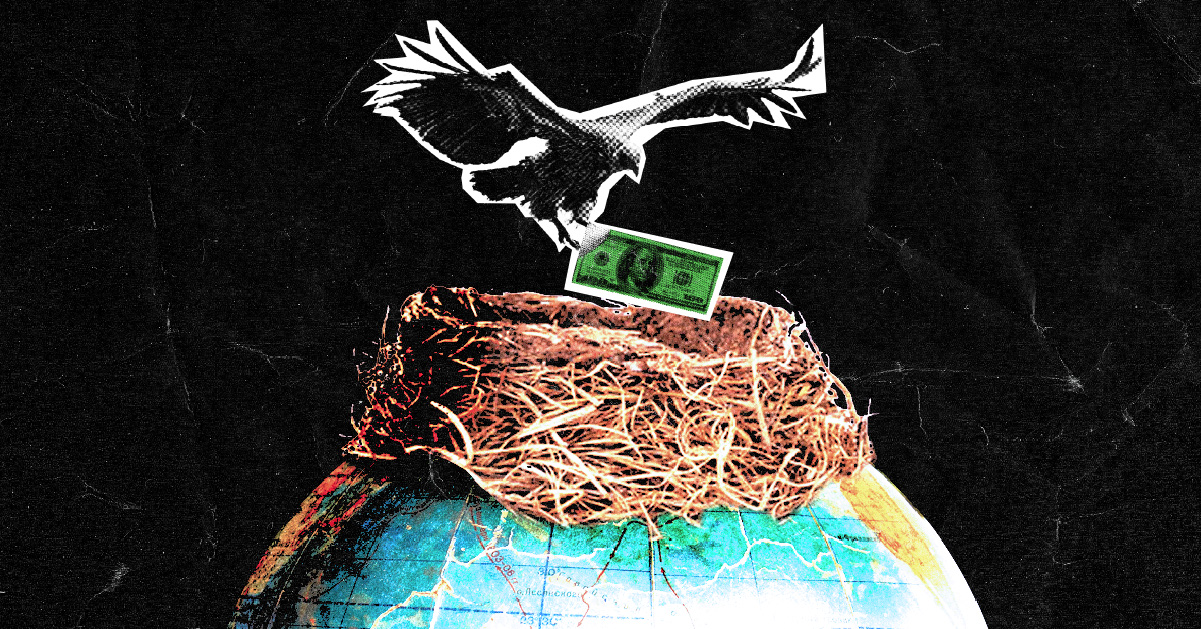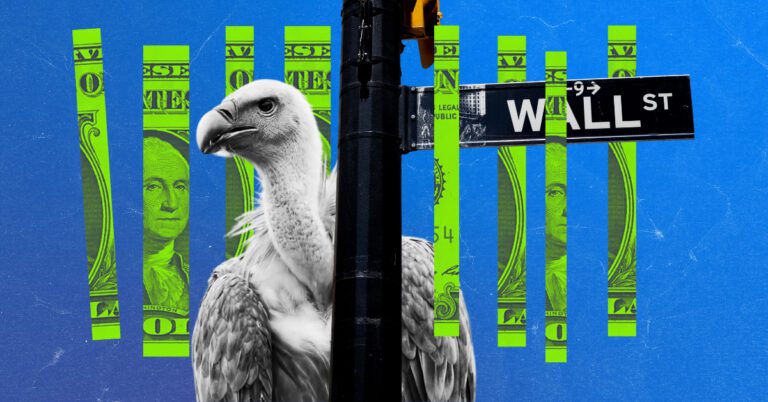Floods, wildfires, hurricanes, and extreme heat – climate disasters are everywhere in our feeds and our lives. Yet, long after the news cameras and global thoughts and prayers are gone, countries are left to pick up the pieces, or at least try to. But for far too many countries, when the flood waters recede and the sun shines again, it merely shines a light on a stark reality: the money that might have helped to mitigate and rebuild from disasters are gone, instead a select group of hedge fund investors have snatched up those funds.
How are hedge funds fuelling climate disaster in our backyards?
Countries under heavy debt burdens from hedge funds often face cuts to funds for climate resilience and environmental protection, making them more vulnerable to natural disasters, like fires, floods and hurricanes. And we’ve already seen what happens right here in the U.S. when states cut funding for essential fire and emergency services during wildfires and mass flooding.
Wall Street hedge funds exact enormous profits from countries in financial distress when they buy up sovereign debt (e.g. debt issued by governments). These predatory investors, called “vulture funds,” purchase debts owed by struggling countries, sometimes for pennies on the dollar, and then demand full repayment and sue countries in New York courts. Vulture funds often secure billion dollar debt payments to enrich themselves while communities face poverty, slashed public services, and destabilized economies.
A Case Study: What does climate fallout from predatory debt practices look like?
The playbook is the same everywhere. But hedge funds have been using the Caribbean and Latin America as a testing ground on predatory practices for decades.
Let’s start with a little tour of the Caribbean, shall we? First stop: Grenada, which had the misfortune of taking on a hefty debt of approximately a billion dollars in the early 2000s. When Hurricane Ivan hit the island in 2004, it left devastation in its wake and a mountain of debt. Grenada’s attempts at restructuring their debt were complicated by vulture funds. Instead of lending a helping hand, hedge funds demanded full repayment, effectively holding the nation hostage while it tried to recover from an emergency. For example, when Grenada sought to negotiate terms, these funds resorted to aggressive legal tactics, seizing assets and blocking aid, further crippling the island’s recovery efforts.
Next up: St. Vincent and the Grenadines, which faced a staggering $1.6 billion in debt during its volcanic eruptions in 2021. There, hedge funds thwarted recovery efforts. They seemed to think that natural disasters were just a creative way to extract a little more money from the already impoverished island. As the government struggled to provide aid and rebuild infrastructure, these funds threatened legal action to collect on debts, forcing officials to divert critical resources away from recovery and towards lawsuits- leaving communities stranded.
And then there’s Barbados, a nation that has also faced its share of financial turmoil, grappling with around $8 billion in debt as of 2018. As the government sought to implement an ambitious restructuring plan, it too had to navigate the treacherous waters of hedge funds. Again, instead of assisting these funds took a predatory stance, seeking to profit off the misfortunes of a nation trying to rise from the ashes.
You may also be familiar with Puerto Rico‘s debt crisis. In 2017, Hurricane Maria barreled through, reducing its infrastructure to rubble and straining resources to a breaking point. Instead of offering solutions, the U.S.-appointed Fiscal Control Board (FOMB) imposed stringent measures that further eroded public services, not unlike a lifeguard who only pushes you deeper into the water while the tide pulls you under. Over 30 vulture funds and distressed investment firms, known for their significant holdings in Puerto Rico’s debt, engaged in aggressive litigation and restructuring efforts. Notorious players like Aurelius Capital Management, Elliott Management and Oaktree Capital Management exacerbated the crisis. These firms are not just passive investors; they are active participants in a strategy where higher profits depend on maximizing pain on debtor countries.
But one thing is for certain: while hedge funds have been testing out predatory debt practices in the Caribbean, it’s become a core strategy for profiteering on climate crises across the globe.
For example, the country of Sri Lanka, which is currently in default of its debt, suffered catastrophic losses amidst heavy flooding last year caused by both monsoon rains and cyclonic storms. Similarly, Pakistan, which is one of the top countries at risk of default globally, suffered historic flooding in 2022 that killed thousands of people, affecting approximately one third of the entire population, and causing tens of billions of dollars in damage, including long-term impacts to the country’s drinking water system.
On the African continent, meanwhile, Ghana is precariously poised on the brink of debt default, while battling increasing heat waves, volatile rain patterns and lasting droughts that have decimated its agricultural system. Zambia, on the other hand, defaulted in 2020 and is currently still locked in a battle with creditors, where some will likely pursue full repayment, pushing Zambia deeper into financial distress.
Why Does New York Matter?
As a city that touts itself as a center of global commerce, around half of sovereign debt contracts are governed by New York law. That means our state has both the opportunity and the power to disrupt the vulture fund playbook, making debt markets operate more fairly and sustainably, while improving both financial and political stability for directly impacted communities. We can advocate for laws that stop predatory hedge funds from harming our communities.
Lawmakers in New York state can and must take action to end predatory financial behavior by passing the following bills:
- Champerty Doctrine (S1477 Krueger/A643 González-Rojas)
As the law currently stands, vulture funds are able to grind down debtor countries in extended cycles of litigation. This bill would strengthen the Champerty Doctrine by making clear that it is unlawful for vulture funds to use New York law to profiteer from the distressed debt of struggling countries. (The Champerty Doctrine is a key protection that previously existed in New York law until 2004, when billionaires lobbied the NY legislature to remove it.)
- Sovereign Debt Stability Act (S2333 Rivera/Davila)
This bill would create a bankruptcy-like process that allows countries to negotiate down their debt without being blocked by a predatory minority of debt-holders. The bill would allow debtors to select one of two mechanisms to ensure a fair and efficient restructuring of distressed debt.
New York must act, and urgently. As much as we may try to scroll away from them, climate disasters around the world affect us all, impacting everything from economic development to migration patterns. The lives of countless individuals across the world hinge on ending the predatory practices that trap us in a cycle of debt and disaster. It’s time for us to reclaim a more resilient future—no ifs, ands, or vultures about it.
Written By Iris Figueroa and Marlyn Goyco




